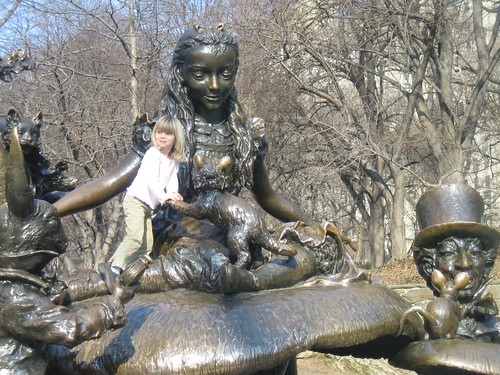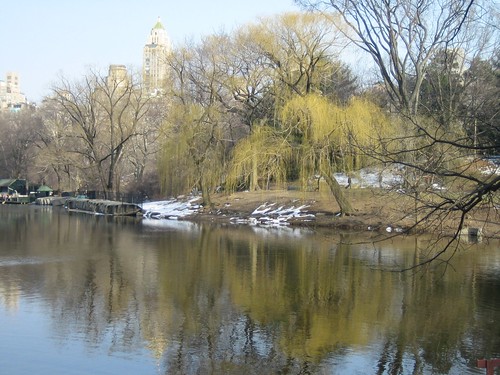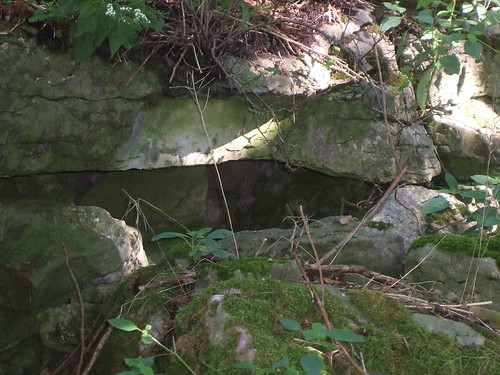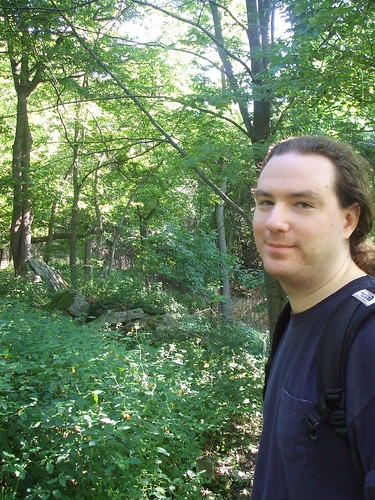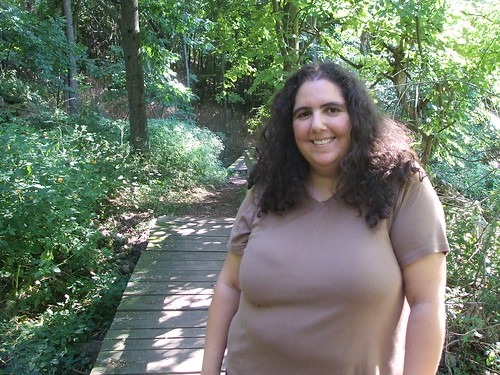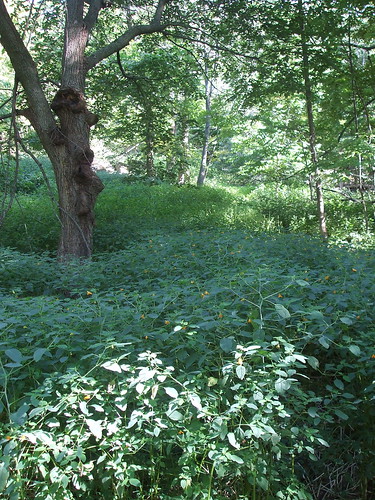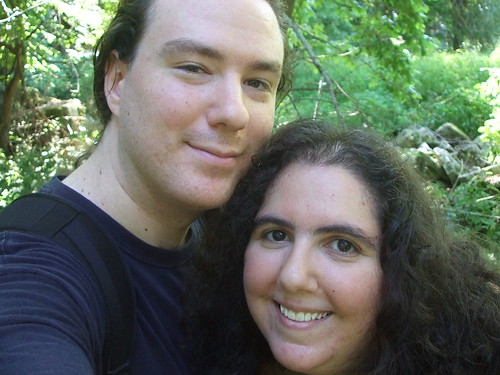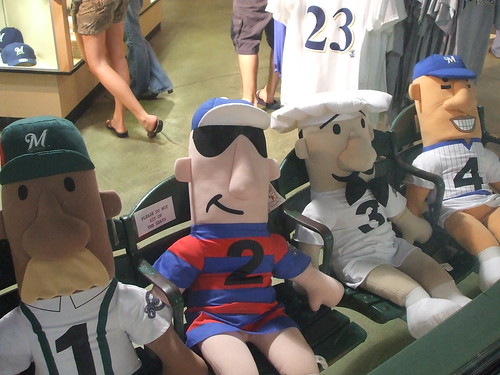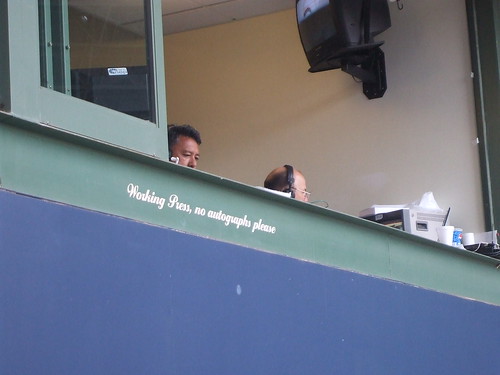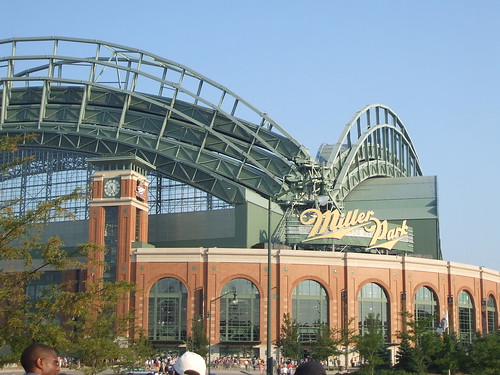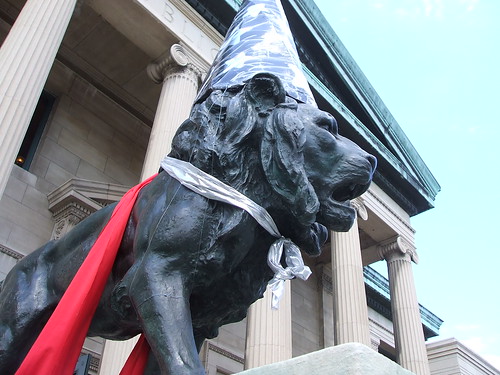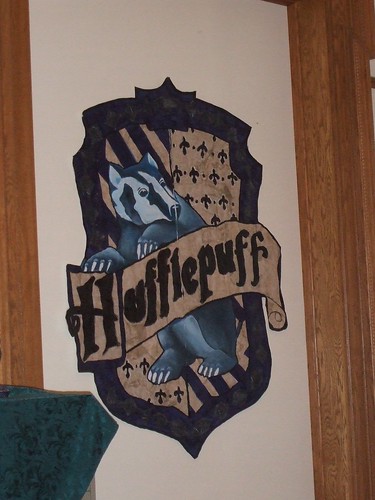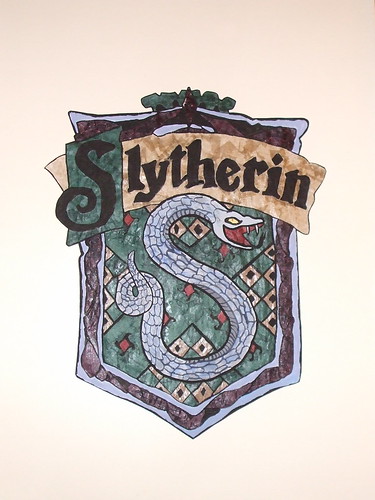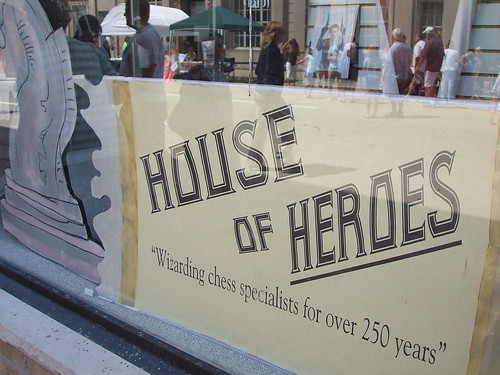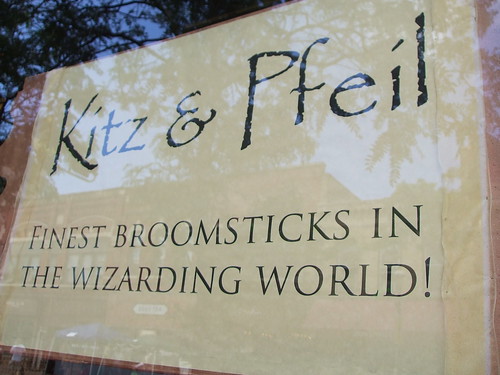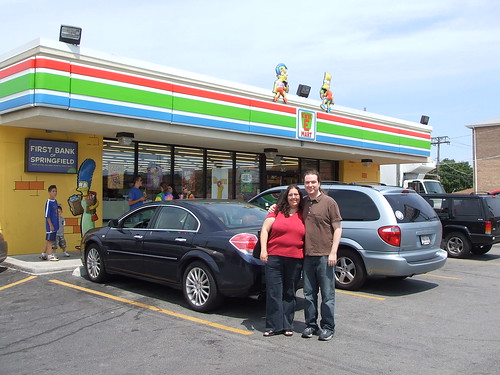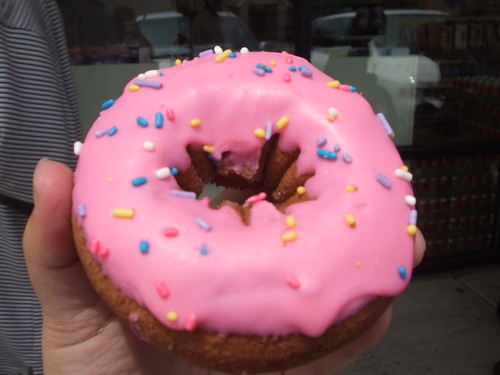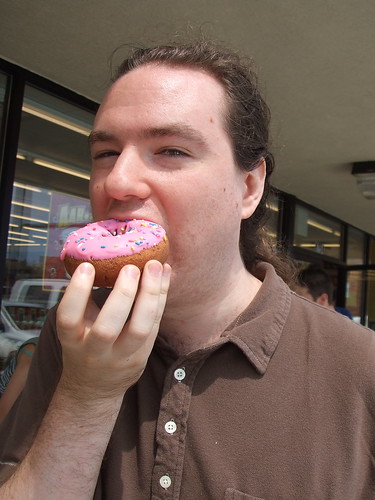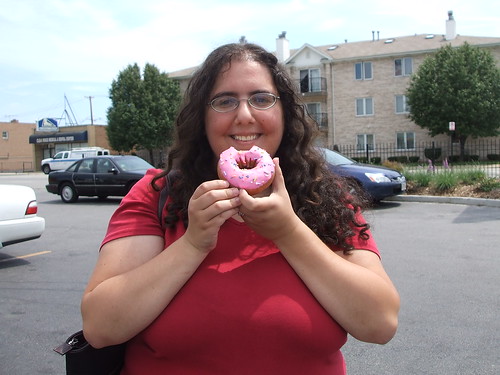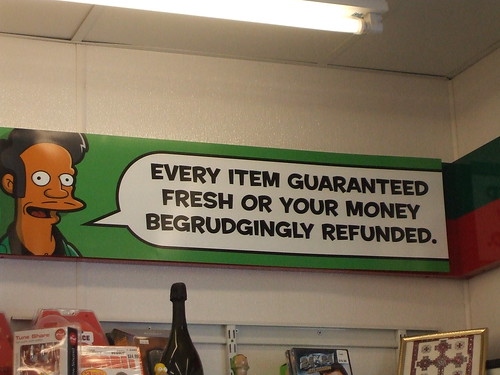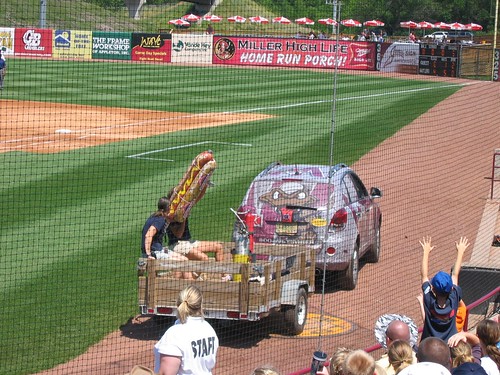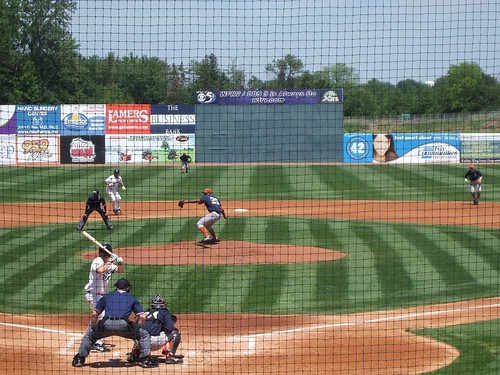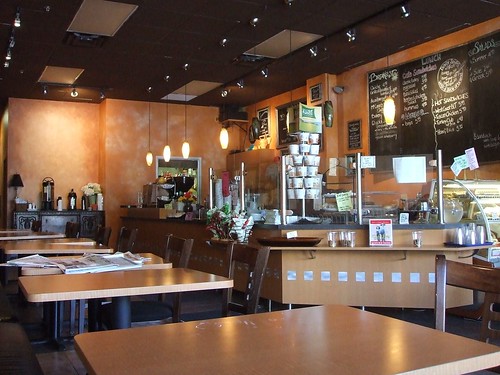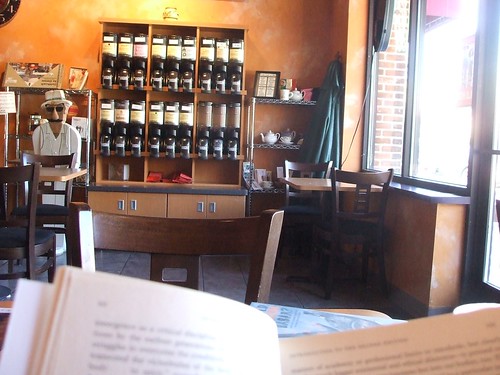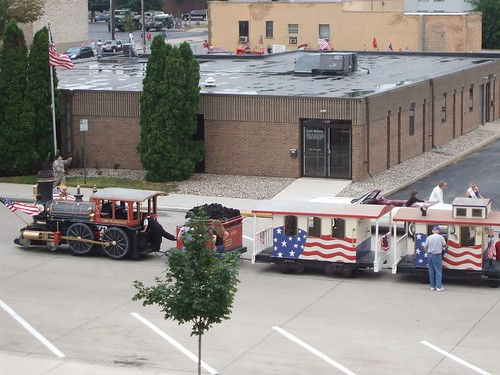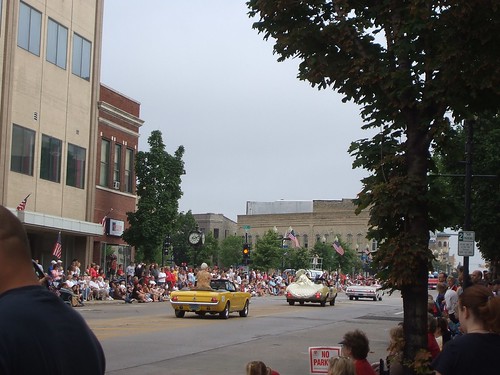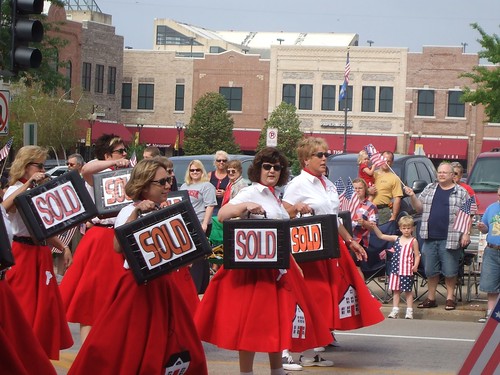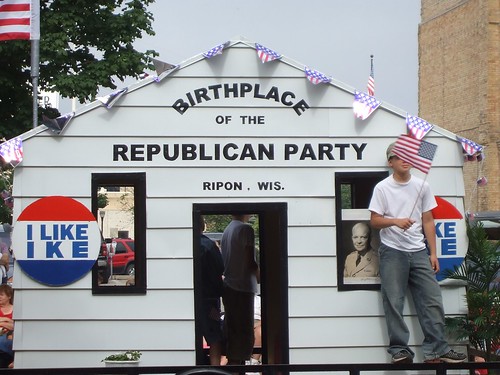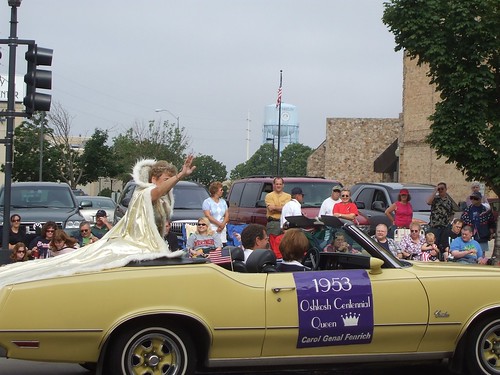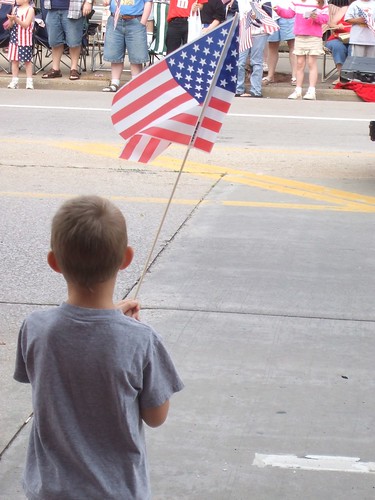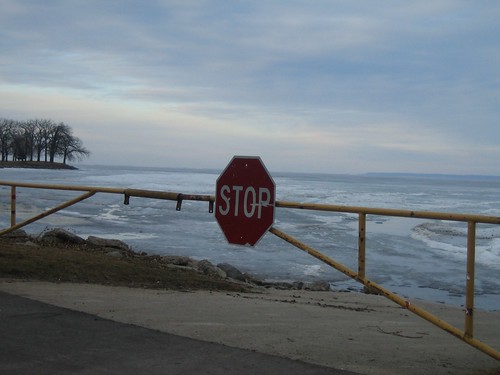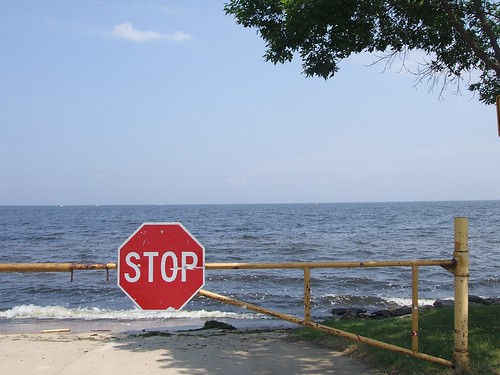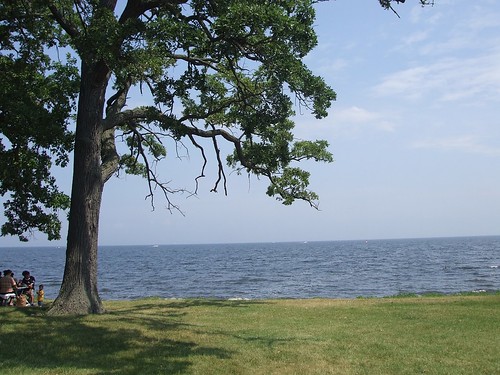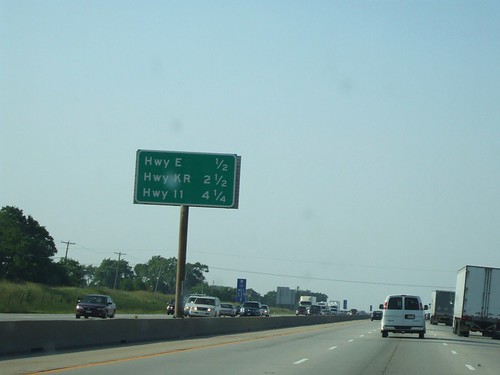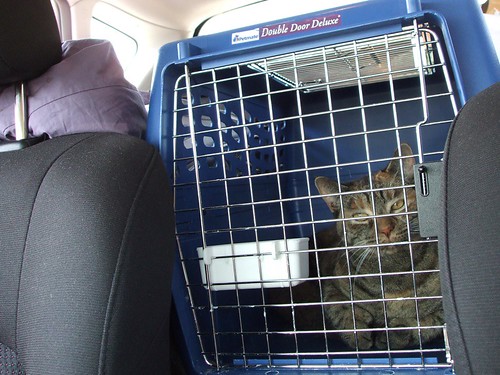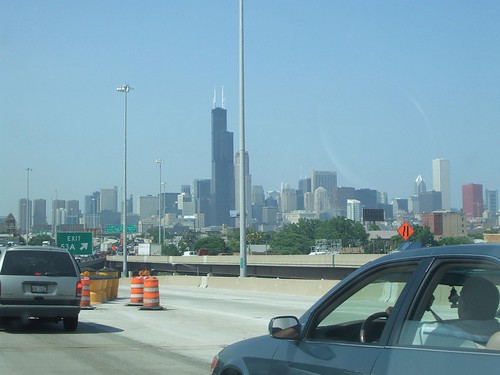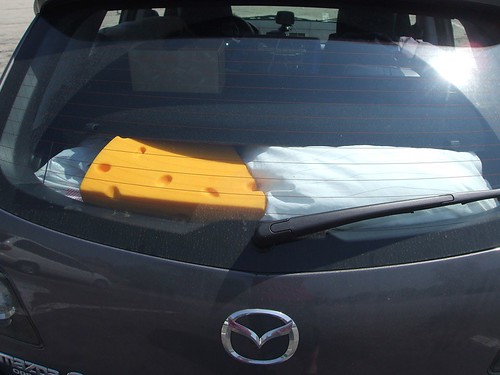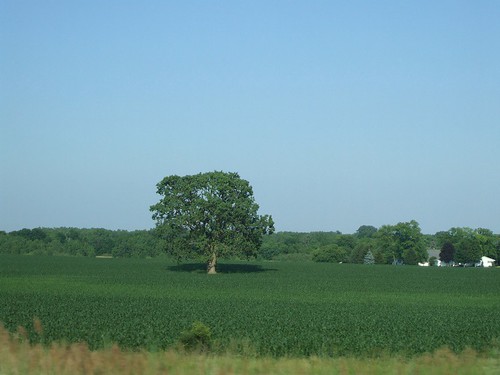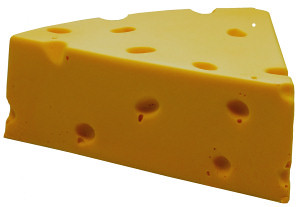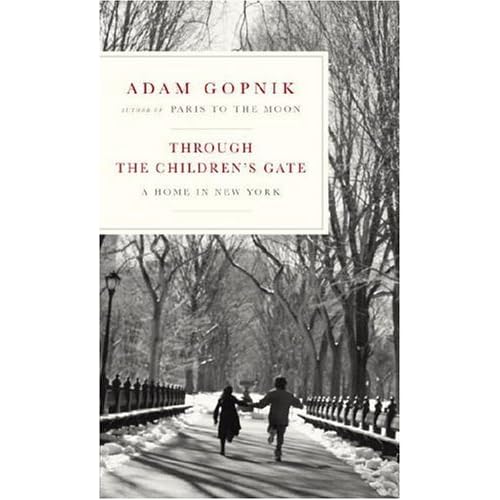
Just finished reading Adam Gopnik's Through the Children's Gate: A Home in New York. In this memoir-ish essay collection, Gopnik, who writes for The New Yorker (lucky him!), discusses, among other sundry topics: the raising of children in New York; parakeets and psychoanalysis (although, alas, not in the same essay); touch football; jazz; his daughter's imaginary friend Mr. Ravioli; his son's varying preoccupations, ranging from chess to Lord of the Rings figurines; and most of all, the city. (You can read an excerpt from the book over here.] I now feel slightly drugged, as I tend to feel when I've finished a book in essentially one sitting, a bit (pleasantly) inhabited by the author's voice and a bit more in search of my own.
(I am also, quite literally, still a bit drugged, having been fighting off a migraine for several days, a migraine which coincided with the otherwise lovely visit of my good friend H.... more on that to follow).
The time range of Gopnik's book overlaps almost precisely with the first five of my seven years living in the city: from 2000-2005 (He organizes the book by "Thanksgivings" but these chapters often zig zag merrily back and forth across autumns and winters; he briefly mentions "The Gates," which were early 2005, and felt, to me at least, like a moderate closure on this particular span of time). In this way, reading the book was a little bit like reviewing a bit of my own history, and there was much to identify with here. There was also a lot here which certainly does NOT map on to my own experience: during 2000-2005 I was not 1) employed by The New Yorker, 2) a resident of the Upper East Side, or 3) the parent of two small children. The first two are circumstances of privilege and talent; the third is primarily a matter of age and, also, a demographic characteristic which Gopnik notes in the book: the typical New York 10-year delay of having children (when compared with the rest of the country). Gopnik is (I think) aware of the privileged space from which he writes, and I, with a Columbia degree and with temporary (1 year) residency on the Upper West Side, certainly cannot cry "poor me!"-- but it was still, at times, a bit frustrating to read his odes to the joys of raising children in New York.... we left for many good, career-not-child reasons, but if I were in New York and I DID have children, I very likely could not afford to raise them in Manhattan.
That aside, I loved the book. Gopnik captures the spirit of the once-outsider who comes to New York well, jumping off from his memories of a childhood visit:
.....We ate dinner at a restaurant that served a thrilling, exotic mix of blintzes and insults, and that night we slept in my aunt Hannah's apartment at Riverside Drive and 115th Street. A perfect day.
I remember looking out the window of the little maid's room where we had been installed, seeing the lights of the Palisades across the way, and thinking, There! There it is! There's New York, this wonderful city. I'll go live there someday. Even being in New York, the actual place, I found the idea of New York so wonderful that I could only imagine it as some other place, greater than any place that would let me sleep in it-a distant constellation of lights I had not yet been allowed to visit. I had arrived in Oz only to think, Well, you don't live in Oz, do you?
Ever since, New York has existed for me simultaneously as a map to be learned and a place to be aspired to-a city of things and a city of signs, the place I actually am and the place I would like to be even when I am here. As a kid, I grasped that the skyline was a sign that could be, so to speak, relocated to New Jersey-a kind of abstract, receding Vision whose meaning would always be "out of reach," not a concrete thing signifying "here you are." Even when we are established here, New York somehow still seems a place we aspire to. Its life is one thing-streets and hot dogs and brusqueness-and its symbols, the lights across the way, the beckoning skyline, are another. We go on being inspired even when we're most exasperated.
New York is the ultimate mathematical limit, the line you can ALMOST reach, but not quite, it's never really there, and that, of course, is its value.
And there, for the second time in a month, is Riverside Drive in the one-hundred-teens, also prominent in Enchanted... am I missing something? Is Morningside Heights actually some sort of cosmic center?
I appreciated Gopnik's lyrical sense for New York and its absurdity, for life and its fragility, and most especially, his passing on of the loftiest moments of Jewish humor to his son ("Waiter, what's this fly doing in my soup....", etc). This is certainly a major part of my own family's New York heritage. I deplore his eventual turn to rooting for the Yankees (Freudian slip-- I accidentally just typed "rotting"), even though, yes, his son turning to the Yanks in autumn 2001 has great poignancy, and was probably the only time I've ever laid down my own Yankee-hatred.
Early in the book, Gopnik draws humorously on a school production of Peter Pan and the question of children flying to bring out a good deal of parental angst (and meaning). Towards the end of the book, and following the evolution of his son Luke's hobbies, he leans heavily on Tolkien metaphors, which worked well for me, and makes sense, given how heavily the books (thanks to the movies) were running through the zeitgeist of 2001-2003, and beyond. Some might find this stuff cloying, but I dug it just fine.
I'll admit it: before I noticed Gopnik's name (I adored "The Real Thing," which appeared in the New Yorker and was a reading selection when I taught University Writing), I picked this book up on a bookstore shelf because I was drawn to the title and the cover-- Central Park's Children's Gate is not far from the Alice in Wonderland statue, which figured heavily in my own childhood memories...growing up in New Jersey, spending time in the city, but not of it (and still not as hard to impress as Maccabee, who really grew up there), time spent in the city remains extremely vivid, childhood echoes I wrote over with grown-up shoes: playing on the Alice Statue and by Belvedere Castle with our friends the S. family (their daughters are now all mothers, aunts); seeing the Met with friends from junior high; having my parents coax me down the subway stairs when I was scared of the noise the trains made (the truest sign that I was NOT a New York Child).
Reading this book here in Wisconsin evoked both nostalgia and a pleasant sigh of relief. It's not that I'm "done" with New York-- I don't think the city is ever DONE with you. Reading about the city, and those TIMES in the city, is quite pleasant from here--- look, I did that, I lived some of that, now here I am in the proverbial Connecticut (except much, much farther away than Connecticut, to which Gopnik's wife occassionnaly suggests they depart), away from all that possibility and diversity, yes, but also away from the high rents and the imaginary playfriends with assistants and the private school children and, yes, the slight lurking fear of terrorism. The whole human condition, "mortal coil thing," to quote a Whedonism, is still present here in the Midwest, so much of the book's pathos and humor is as true, reading here, as it is anywhere.... and yet, here, I can see sky. I can tell what the weather is, as he notes, by looking outside, not by checking the newspaper.
In short, reading Through the Children's Gate, which was both thoughtful and extremely funny, became emblematic of the gap in the subhead of this blog: I am an expatriate New Yorker, living in Wisconsin. (Perhaps I need to go back one book and read Gopnik as an expatriate New Yorker living in Paris? That's quite an analogical stretch). To my students, New York is the big city they see in movies (we screened Keeping the Faith in my American Judaism class), and when they visited the city as tourists, some of them went to Ground Zero.... as tourists. (Respectful ones, as any Midwestern student would likely be.... my women's studies students asked me if New Yorkers were offended by all of the souvenirs sold near the WTC site). (There's also the philosophical question--- are we all in some way tourists at Ground Zero?--- but i'm not going there this eve, and I think M. Sturken has in one of the books I bought at the AAR, besides).
For good or for ill, far more of the country is like Wisconsin than like New York (and there are a whole vast swath of regional variations to be explored, all of them gradually being over-run by the homogenizing forces of the big box stores.... I think this is part of the appeal of sports loyalty. SOME things must remain local). New York, seen from Wisconsin, remains for me part fairytale--- did I REALLY ever live there??--- and part reality-- oh, yes, I lived there, with plenty of stress and roaches and small living spaces to show for it... Now I need to find ways to read the America in-the-between, in a Midwestern place that is certainly not (just?) the soul-less car and mall culture that New Yorkers always think lurks beyond the Hudson, or that my students mistakenly think I, as a former New Yorker, must see here.
(Below.... the Alice statue and the pond, seen last spring; the campus behind my office building, seen last week)
